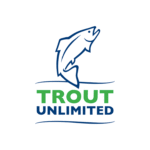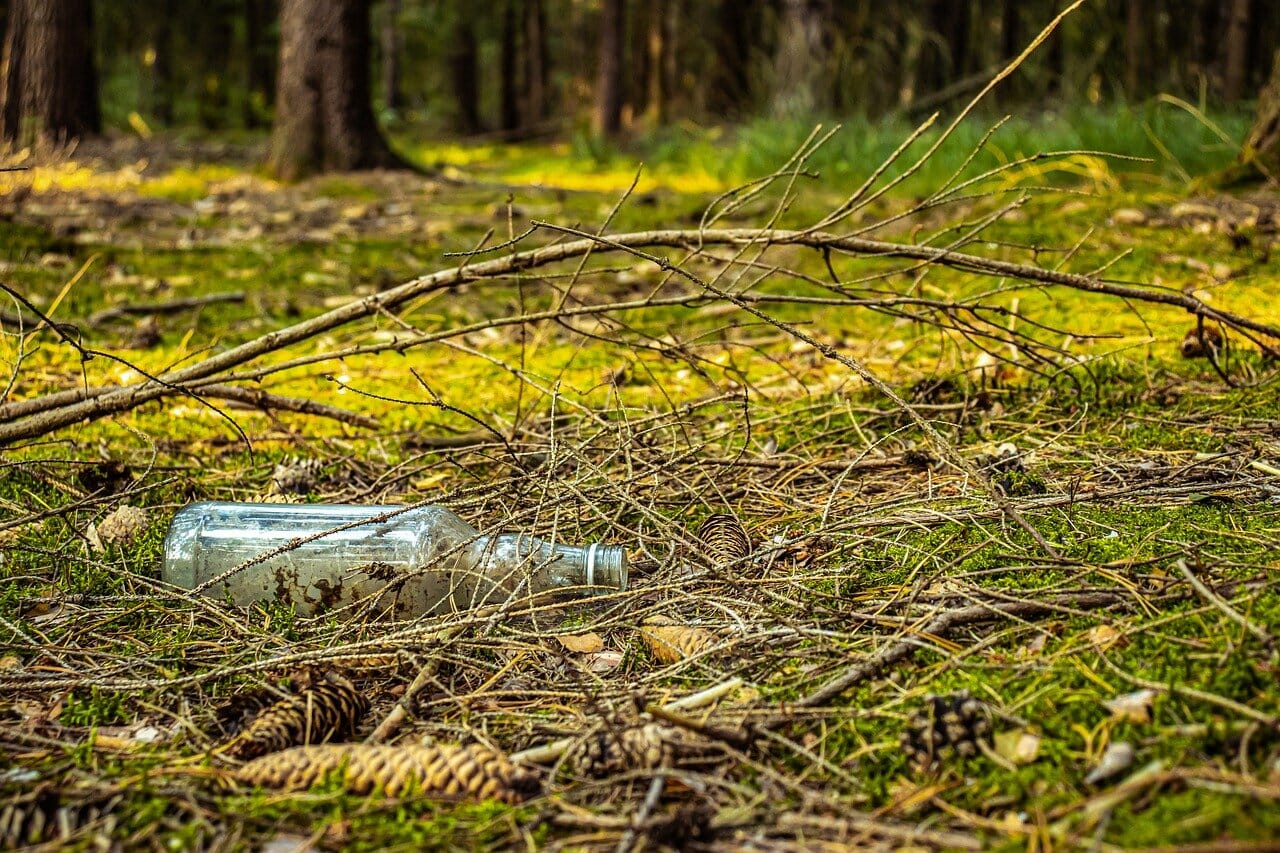Kamil Miłkowski photo via Pixabay.
Editor’s note: With more and more people heading to the outdoors in pursuit of safe and healthy recreation, reports of bad behavior are becoming more common. From abandoned campfires to litter, we’re seeing impacts on public lands that stem largely from ignorance rather than malice. We asked several long-time Trout Unlimited anglers to share their bad experiences in the woods and on the waters in hopes of encouraging new outdoor enthusiasts to learn the ethical ropes and lessen the impacts their behavior has on others. Not sure about the ethics and behavior? The “leave no trace” mantra is a good place to start.
And the Darwin goes to…
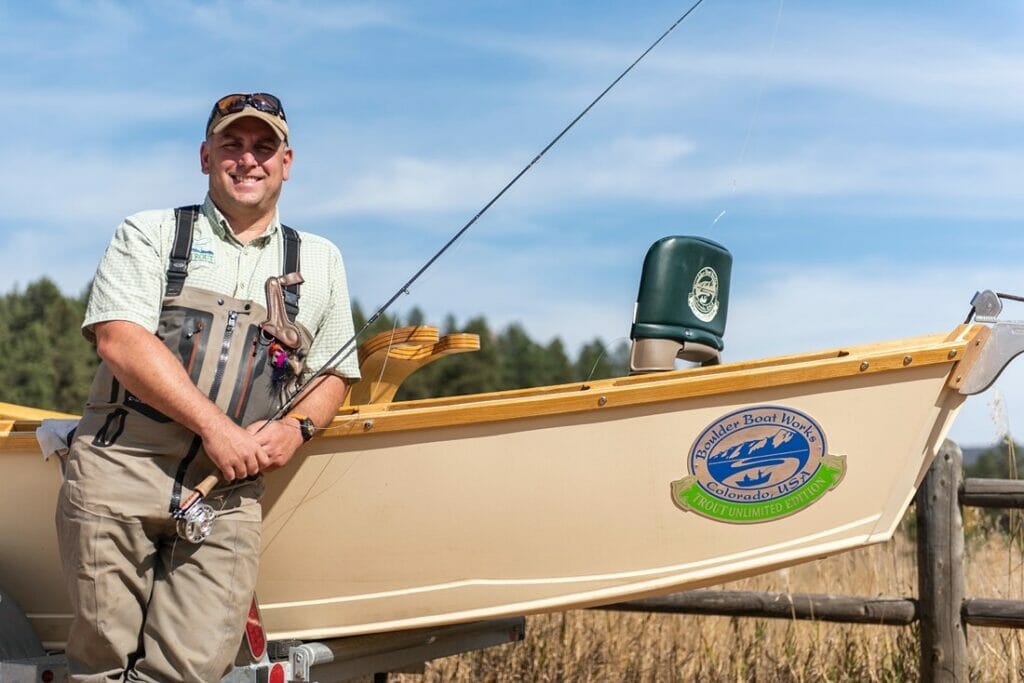
I’ve seen a lot of people playing with fire when they shouldn’t be. Big campfires when burn bans are in effect… just blatant disregard for the landscape, and other people (most notably including the firefighters who ultimately battle the effects of this brand of carelessness). I love S’mores to a fault, but sometimes you need to just eat the Hershey bar, keep a cold camp and be considerate. The blatant disregard for fire warnings, from cigarette butts thrown out the windows of vehicles, to blazing campfires… is just sometimes incomprehensibly stupid and sad.
Colorado in July and August has become a Darwin-Award breeding ground.
— Kirk Deeter, Editor-in-Chief, TROUT Media
Folks who should know better
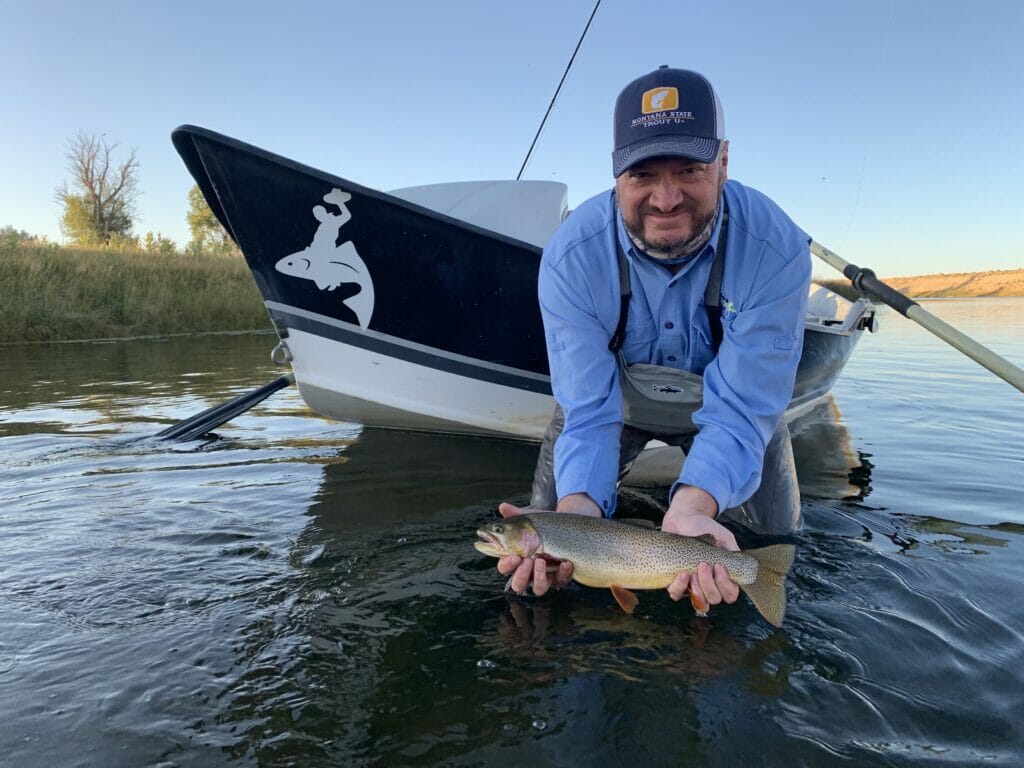
I can almost forgive the masses of people experiencing our public lands for the first time last year for the messes they left, but for me it is the people who know — or should know after years of use — how to properly visit national forests, national and state parks, and Bureau of Land Management units across the country who raise my hackles.
Instead of leading by example and providing suggestions for the newbies, I too often witnessed people who know better adding to the problem by throwing three bags of trash on top of the 50 others that didn’t fit in the dumpster when they easily would have fit in the trailer they were hauling or in the back of the truck and thrown away at home. It’s like those people who don’t seem to mind hauling a case of beer into the backcountry, but somehow find it more difficult to haul the empties back to civilization and a recycle bin.
That being said, I did notice plenty of individuals and groups attempting to help understaffed land-management employees clean up after those too lazy or uneducated about the proper ways to do the right thing.
— Brett Prettyman, TU communications director for Science, Western Water and Habitat and Headwaters programs
Know the rules … understand the ethics
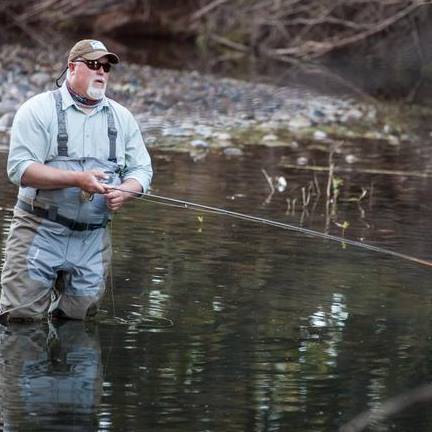
It’s not just one bad act, unfortunately. Last summer, in the throes of the COVID-19 outbreak, I saw a noticeable increase in outdoors participation, which, by itself, isn’t a terrible thing. But the folks new to the outdoors seemed to just “jump in” to their chosen pursuit without taking the time to understand the ethics surrounding the use of public lands.
Case in point: in a single weekend last summer, I saw a new fly fisher on one of my favorite cutthroat trout streams harvesting trout. This wouldn’t be a huge deal, but the regulations for this specific stream call for catch-and-release fishing only to protect native trout (and the regulations are clearly communicated in the state Fish and Game rules brochure every angler gets when she or he buys a fishing license). Later the same day, a camper in a brand-new RV in a neighboring dispersed campsite opted to open up his black tank (sewer) and spill it on the ground to make room for more you-know-what, rather than hook up the camper and take it into town for proper disposal. When I called him on it, he said he would have hooked his camper up and taken to the nearest RV dump, but he didn’t want to lose the site to someone else while he was gone. So, he and his family opted to camp next to a soupy pile of crap for two more days. And guess what? He made that decision for us, too. Seriously.
Finally, the road into one of my favorite campsites was so deeply rutted that, had I not been in a high-clearance vehicle, I would have been unable to access it. This was due to simple ignorance — one or two off-road vehicle riders had a grand time “mudding” it up, likely while the road was saturated with runoff a week or two earlier. Now the little road into the campsite is three times as wide because other drivers choose to go around the ruts, which basically creates a whole new road. Experienced ORV users would not have ventured down the road once they realized it was too muddy to navigate without damaging it (and ruining it for future riders and drivers).
I firmly support more new people getting involved in outdoor activities on public lands. On the whole, I believe this creates more allies for the resources we love. But, damn it, there are rules and ethics associated with visiting these shared resources. Educate yourselves. Limit your impact on these lands, because you’re not the only one enjoying them. It’s not that difficult.
— Chris Hunt, managing editor, TROUT Magazine digital
Better funding and enforcement
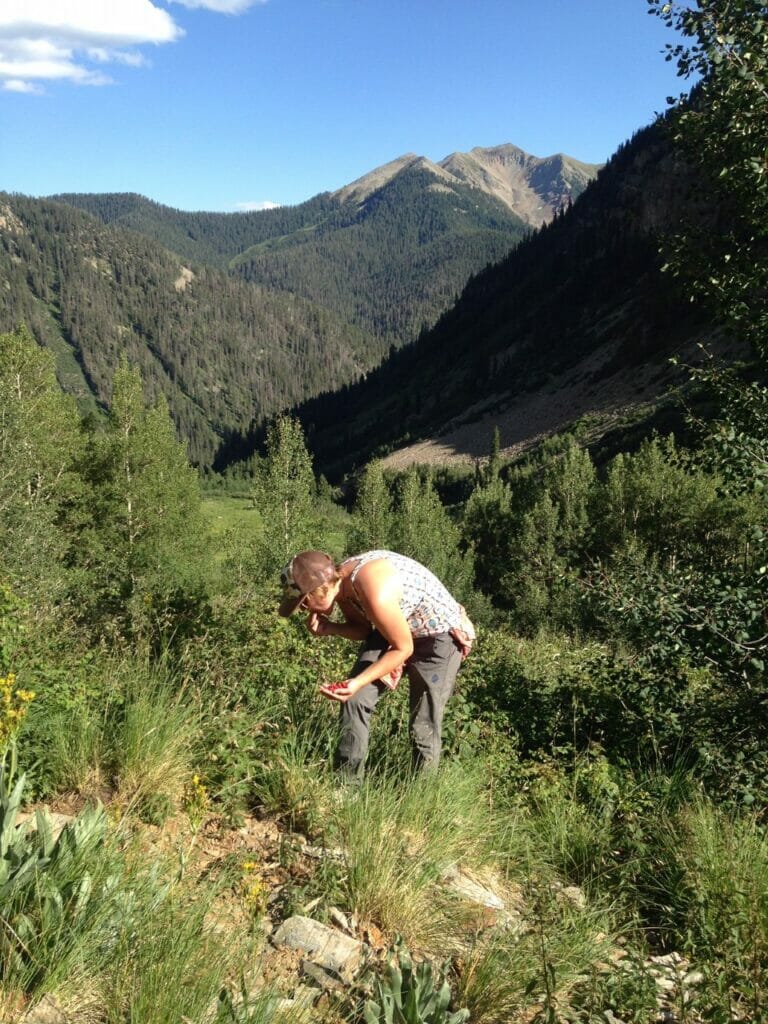
I have to say the impacts I’ve seen on our public lands and waters has been worse on the lands than the waters, at least so far. While refuse is the most common sighting, I can’t believe the numbers of people camping, using trails and parading around these beautiful places with no thought of what they are leaving behind for the next people to find. Some of the most cringe-worthy offenses include surface mines (yes, human feces complete with toilet paper on the ground in plain sight), social trails and side-by-side tracks where they don’t belong. While I’m all for people getting outdoors and enjoying the lands and waters that are theirs by birthright, I believe it is more of a one-bad-apple situation….well maybe two or three bad apples. When someone in an off-road vehicle decides to go off trail, those tracks damage the landscape for years but also encourage others to follow suit as they think it is now OK to do the same. Same goes for dumping trash, using the outdoors as their personal toilet and creating offshoot trails from the main trail.
To combat this, I feel we need to encourage our elected officials to better fund the public lands management agencies. More folks approaching and patrolling with an understanding that these people might be first timers and engaging with compassion can’t hurt. I also think we need to talk through the rights and wrongs of how to use these outdoors spaces respectfully right when we see it happening. Turning our heads and talking trash about those people gets us nowhere. On a popular hiking trail near me, a local advocacy group set up camp at the trailhead to help educate the hikers about the dos and don’ts. More of this kind of work is commended.
While I’m not saying I have all the answers, I would encourage each of us who have used these public lands and waters for years to engage our fellow humans in a conversation when we see something amiss. Find common ground (i.e., that you both love the outdoors) and then gently explain that just like them, you don’t want to see these places littered or damaged irreparably. These are special places for all of us. Let’s keep them that way by helping educate.
— Kara Armano, southwest region communications director
Treat it like you own it … because you do
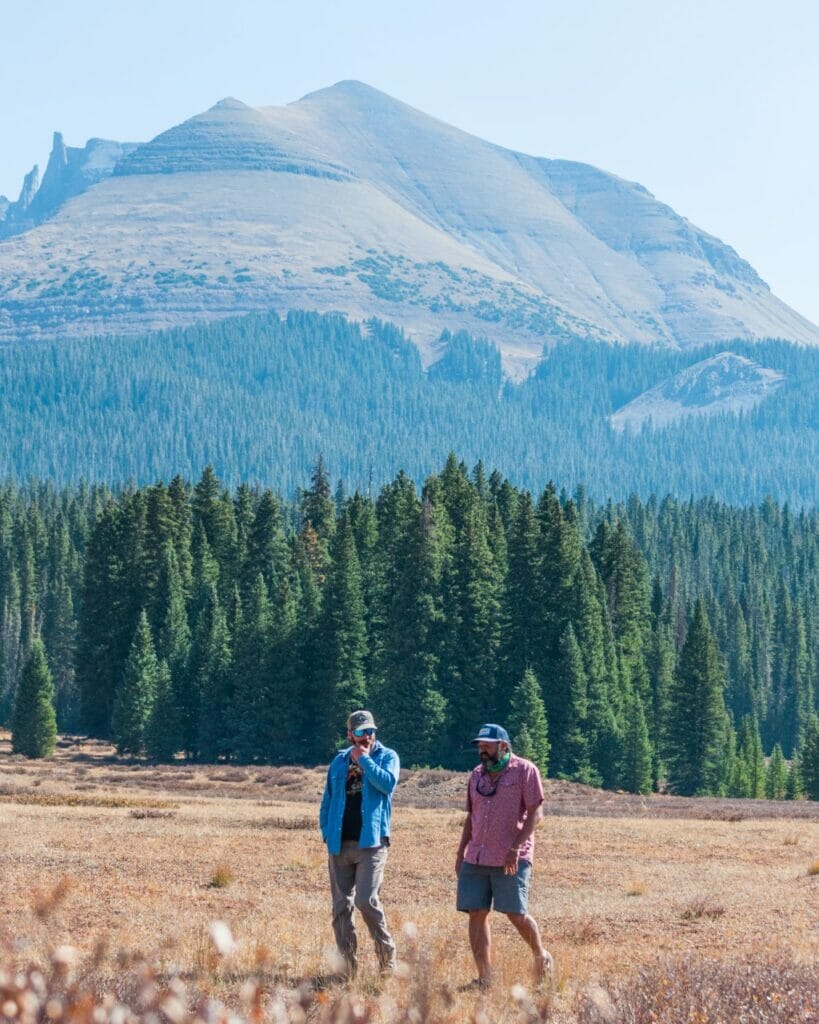
Treat it like you own it. Respect it like your life depends on it. Over the pandemic year, our public lands saw a surge of new usage. There were people on our streams, in our woods, atop of mountains, trekking prairies, and exploring the canyons in unprecedented numbers. There is no universal manual on how to use shared public resources and learning to treat them with respect is often obtained by following the example of others.
I spend a lot of time outdoors, and as much of it as possible, I like to spend on public land. Therefore, I had a front row seat to America’s great outdoor awakening. What did I see?
I definitely saw a lot of people treating our shared resources with respect, but there are always the outliers, the ones that don’t understand or were not shown how to treat our shared treasures. I believe these are the exceptions to the rule, but their impact can be devastating. Many people were using public land before the pandemic and the offenses I saw are nothing new, but they have been amplified because of the increase in the number of people.
Treat public lands like your own — because they are. And respect the natural world like all of our lives depend on it — because they do.
Josh Crumpton
I saw fires that were built too big and in irresponsible places. I saw cat-holes that were dug too shallow or not dug at all and freshly used toilet paper spread out on the ground. Improper fish handling was abound, a disregard for bag limits, questionable hunting and fishing tactics, people wandering off trail in areas that were ecologically sensitive punctuated by a complete disregard for “leave no trace” standards.
It would be easy to say that the offenders are lazy, lacking ethics, or have a complete disregard for nature and their fellow man. But I am the forever optimist. Maybe that is why I like fishing, because in an angler’s mind that big fish is always just one more cast away. Maybe if I change this one fly, if the conditions were different then I would catch one more fish. It is that optimism that keeps me coming back to rivers and streams. I extend that optimism to my fellow outdoors men and women.
I chalk their bad behavior to a lack of education. So I will lead by example, be available to educate, and always say these words: “Treat public lands like your own — because they are. And respect the natural world like all of our lives depend on it — because they do.”
— Josh Crumpton, founder, Spoke Hollow Outfitters, TU trustee


